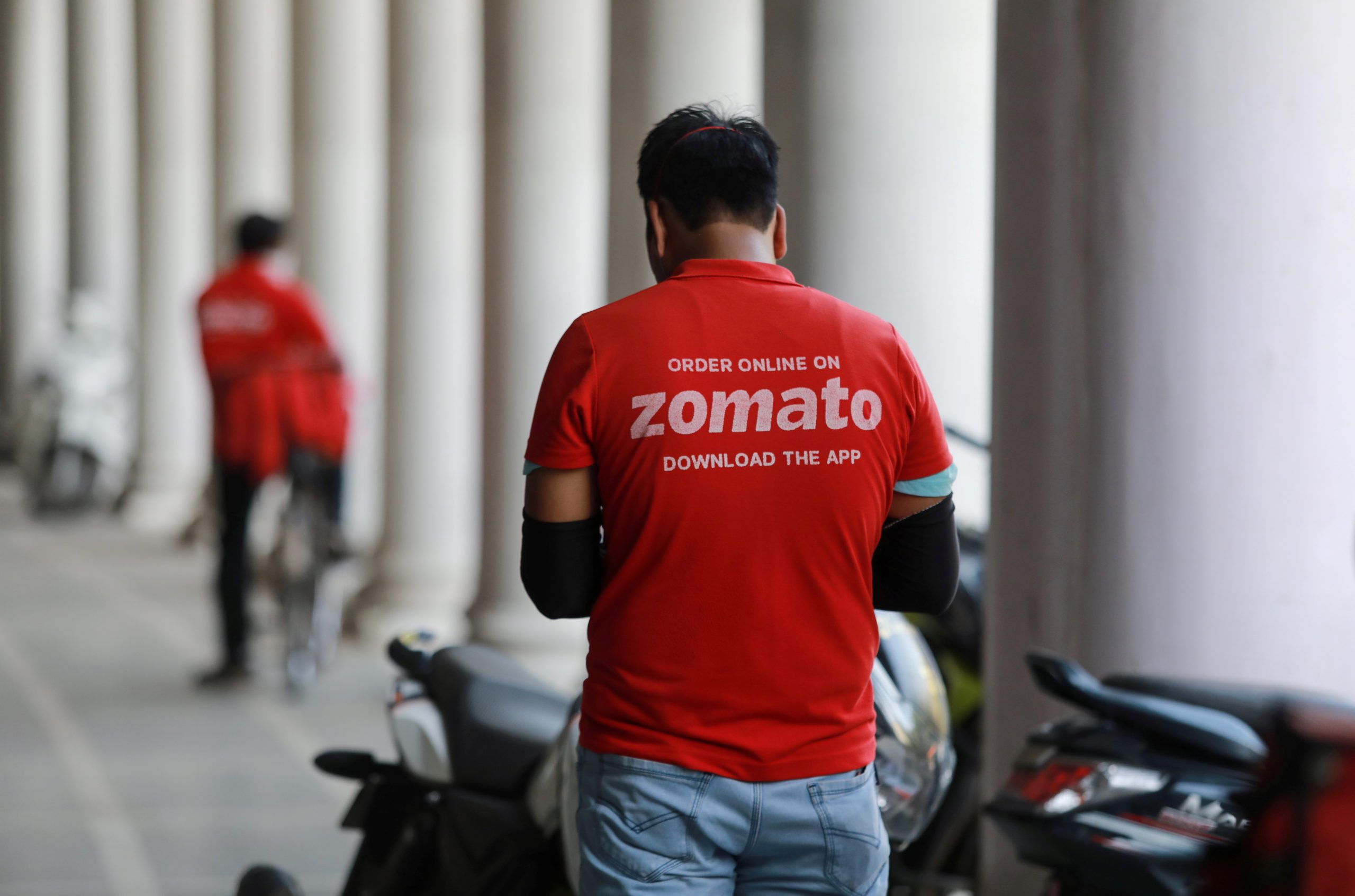Indian food delivery platform Zomato on Thursday reported a net profit of Rs 253 crore ($30 million) for the June quarter (Q1), helped by a rise in demand for its food delivery and quick commerce services, despite heightened competition.
Zomato, which follows the April-March fiscal year, has now reported a profit for five straight quarters. Its most recent quarterly profit, beat analysts’ estimate of a profit of Rs 215 crore, according to LSEG data cited by Reuters.

Revenue from operations in the quarter ended June 30, 2024, rose to Rs 4,206 crore from Rs 2,416 crore, a year ago. The company attributed the increase to growth in its biggest segment—food delivery—owing to a rise in the total number and value of orders received.
The food delivery segment’s adjusted revenue increased to Rs 2,256 crore in the quarter, from Rs 1,742 crore a year ago.
The segment saw a 27% rise in gross order value (GOV). The company said it is on track to getting to 4-5% adjusted EBITDA margin, from the adjusted EBITDA margin of 3.4% in the June quarter.
Its quick commerce segment Blinkit’s GOV grew 130% year-over-year, helped by a rise in its dark store and increase in categories. The company plans to get to 2,000 stores, latest by the end of 2026 while remaining profitable.
“The average selection available to customers in any neighbourhood has increased between 4-5x over the last eight quarters,” said Albinder Dhindsa, the co-founder and CEO of Blinkit.
“A large part of this expansion in selection has happened outside of the traditional grocery segments of FMCG, fruits & vegetables and staples. Over the last six quarters, we have launched and scaled products in electronics, beauty & make-up, pet care, and toys & games and we will continue to invest behind opportunities in newer categories as well,” he added.
Blinkit, which competes with Reliance-backed Dunzo, Swiggy’s Instamart, and Zepto, currently holds the biggest market share in the fast-growing quick commerce market in India. They are vying for the attention of online shoppers in India’s $1-trillion retail industry, along with giant players Amazon.com and Walmart-backed Flipkart.
When asked about rising competition in the quick commerce segment, Dhindsa said: “Competitive intensity in the quick commerce category has been high since the word ‘quick commerce’ was coined. Recently, some players have been spending more on marketing and subsidies. However, our customers, who value quality of service and reliability, seem to be unaffected and that reflects in our performance of the quarter. ”
Zomato’s profitability comes as the firm continues to hunker down to compete with its biggest competitor, Swiggy, for a bigger share of the quick commerce and food delivery markets. Total expenses rose to Rs 4,203 crore from Rs 2,612 crore a year ago, in part due to delivery and related charges.



